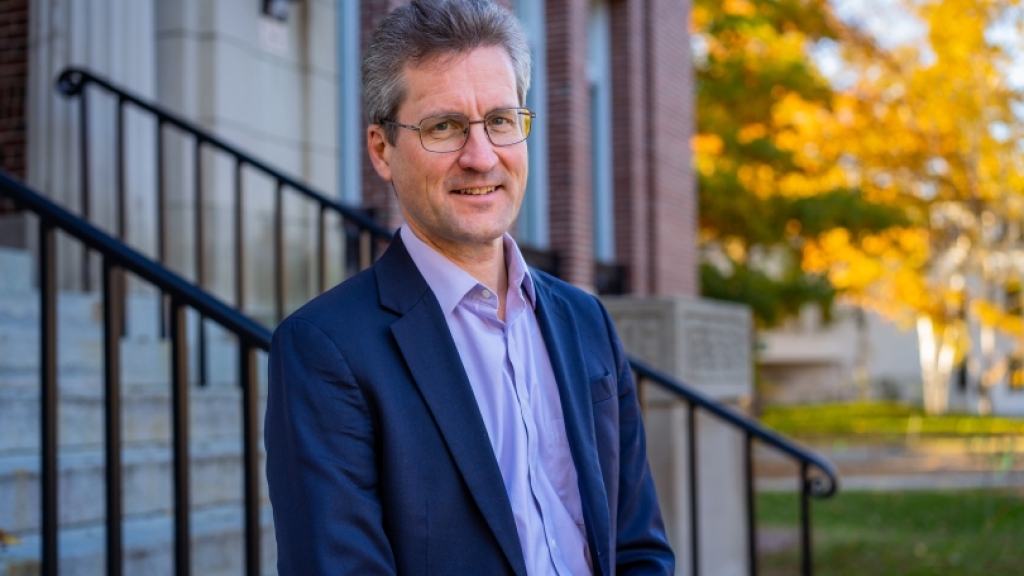Provost David Kotz '86, the Pat and John Rosenwald Professor in the Department of Computer Science has been named a Fellow of the American Association for the Advancement of Science for his contributions to the field of computer systems.
The AAAS is one of the world's largest general scientific societies and publisher of the Science family of journals. The distinction, bestowed upon members by their academic peers since 1874, is among the highest in the scientific community and honors scientists, engineers, and innovators whose efforts on behalf of science and its applications are scientifically or socially distinguished.
"I am greatly honored to be elected as a Fellow of the American Association for the Advancement of Science, because the AAAS is the pre-eminent society for scientists, and because I fervently believe in the value of science to expand human understanding and to improve the human condition," says Kotz.
Kotz, who is among 471 scholars who have been elected 2024 AAAS fellows, investigates the privacy and security challenges raised by the increasingly common presence of smart devices in our homes and residential spaces.
Smart devices are electronic gadgets, connected to each other and to the Internet, which can sense and control their environment and share information, intentionally or unintentionally, with internet-based services, or with friends, families, and businesses.
Kotz leads the Security and Privacy in the Lifecycle of IoT for Consumer Environments project, a five-year National Science Foundation research program whose aim is to reduce the privacy and security risks related to using these smart technologies at home.
To this end, Kotz and his collaborators have devised novel methods to discover and locate electronic devices, monitor the home network for new devices, and prevent eavesdroppers from tuning into smart devices in a home.
In a recent SPLICE study, for example, researchers explored how people perceive data sharing in smart homes as a guide for future designs and research. They identified three main groups of data recipients and found that data types are more important than device types.
What's more, users' preferred access controls were seen to vary based on the scenario, such as who they're sharing with and what data is involved, as do their comfort levels with access controls like explicit approval versus time-limited access, suggesting the need for a more flexible, user-friendly access control system.
In his earlier work, Kotz has developed novel wearable sensor devices to support health research and health-monitoring, such as a wearable device to detect eating behavior, developed secure, usable methods for introducing Wi-Fi devices to each other, and studied how and when people might be receptive to mobile interventions in support of their health. He has also led or co-led three major grants—THaW, TISH, and SHARPS—to address security and privacy in health and wellness.
Also a fellow of the Institute of Electrical and Electronics Engineers and an elected member of Phi Beta Kappa, Kotz became a fellow of the Association for Computing Machinery, the world's largest and most prestigious association of computing professionals, in 2021.
He is joined by Dartmouth researchers George Cybenko, professor of engineering, Jeremy DeSilva, professor of anthropology, and Soni Lacefield, professor of biochemistry and cell biology in the ranks of this year's AAAS fellows.
